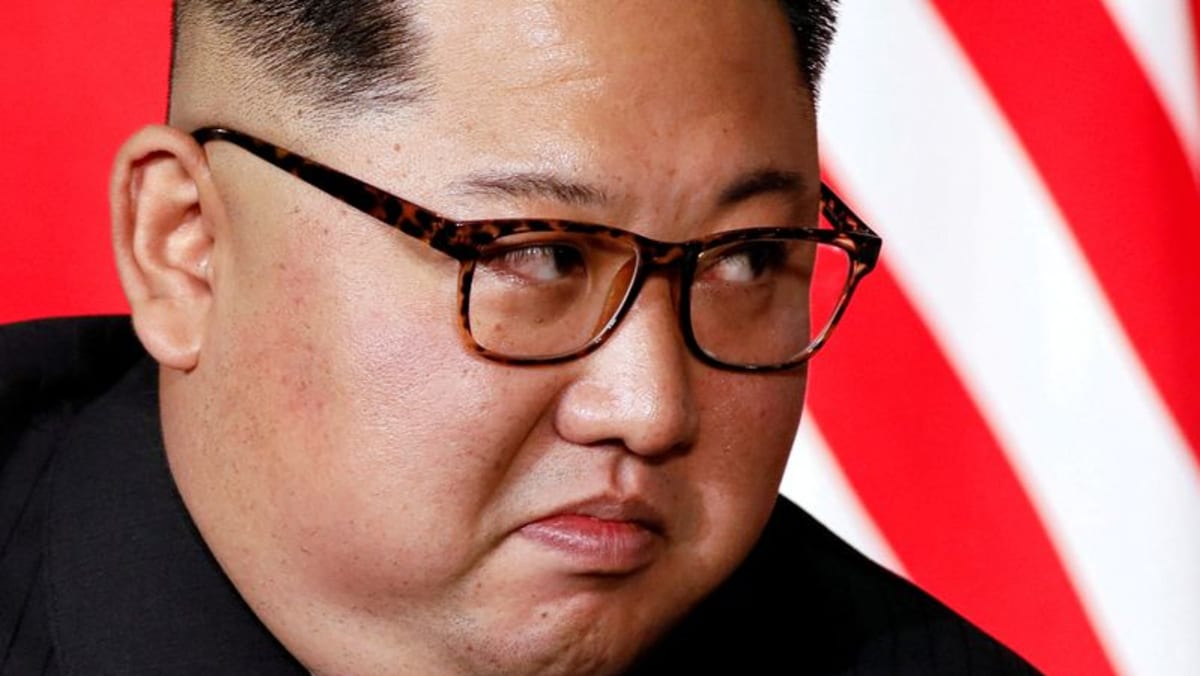Asia
North Korea condemns Trump’s Gaza takeover proposal as ‘ludicrous’

North Korea Condemns Trump’s Proposal on Gaza as Ludicrous
In a fiery statement issued on Wednesday, February 12, North Korean state media vehemently criticized a proposal by United States President Donald Trump to take over Gaza and relocate Palestinians, calling it absurd and accusing the U.S. of extortion. The Korean Central News Agency (KCNA), which serves as the official mouthpiece of the North Korean government, published a scathing commentary that harshly condemned the idea. While the commentary did not directly mention Trump by name, the target of its criticism was unmistakable. The KCNA stated that the proposal had crushed the already slim hopes of Palestinians for safety and peace, describing the international reaction to the announcement as akin to a "porridge pot" boiling over.
A Shocking Announcement with Far-reaching Implications
The KCNA commentary was a direct response to Trump’s surprise announcement that the U.S. intended to remove residents from Gaza and transform the war-torn territory into what the president referred to as the "Riviera of the Middle East." The proposal, which was met with widespread shock and outrage, was lambasted by North Korean media as a brazen display of U.S. imperialism. The commentary accused Washington of disregarding the sovereignty and dignity of other nations, calling the U.S. an "extortionist" for its alleged attempts to expand its influence through questionable means.
A Pattern of Controversial Actions: From Gaza to Greenland
The KCNA critique did not stop at Trump’s Gaza proposal. It also took aim at other controversial actions taken by the Trump administration, which the North Korean media interpreted as further evidence of U.S. overreach. Among these actions were the administration’s calls to take over the Panama Canal and Greenland, as well as its decision to change the name of the "Gulf of Mexico" to the "Gulf of America." The North Korean commentary argued that these actions were part of a broader pattern of behavior that demonstrated the U.S.’s anachronistic delusions of grandeur and its disregard for international norms and respect for other nations’ sovereignty.
North Korea’s Role as a Vocal Critic of U.S. Foreign Policy
North Korea, a country known for its own repressive regime and isolated policies, has long been a vocal critic of U.S. foreign policy. In this instance, it seized the opportunity to denounce what it saw as yet another example of American arrogance and expansionism. The KCNA commentary served as a platform for North Korea to voice its opposition to the U.S.’s perceived attempts to exert control over other regions and territories. By doing so, North Korea sought to position itself as a defender of national sovereignty and a champion of international justice, albeit with a questionable track record on these issues itself.
A Call for the U.S. to Rethink Its Approach
The KCNA commentary concluded with a stern warning to the U.S., urging the Trump administration to "wake up from its anachronistic delusion" and immediately cease its alleged violations of the dignity and sovereignty of other countries and peoples. The North Korean media called on the U.S. to rethink its approach to foreign policy and to adopt a more respectful and cooperative stance toward other nations. This call, however, rang hollow coming from a regime that has been accused of numerous human rights abuses and has largely isolated itself from the rest of the world.
A Broader Context of Tension and Diplomatic Strain
The North Korean critique of Trump’s Gaza proposal and the U.S.’s broader foreign policy must be understood within the context of the tense relationship between the U.S. and North Korea. While the two nations have made some progress in recent years, particularly in terms of dialogue and summits, deep-seated distrust and conflicting interests continue to characterize their interactions. The KCNA commentary reflects the ongoing animosity and suspicion that North Korea harbors toward the U.S., as well as its desire to portray itself as a strong and independent actor on the global stage. Despite the harsh rhetoric, the statement also serves as a reminder of the complex and often fraught dynamics at play in international relations, where even the most unlikely of actors can weigh in on global issues.











